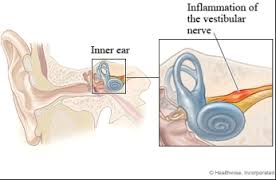
It is estimated that as many as fifty million people in the United States suffer from a form of dizziness or vertigo. The vertigo most commonly occurs when you are lying on your back and you suddenly feel like you are floating or spinning.
Vertigo can be a very frightening experience, but fortunately, it does not have to last forever. You can learn the truth about what causes vertigo so you can make the necessary changes to help reduce and eliminate your vertigo symptoms.
Dizziness is caused by an imbalance between the central nervous system and the peripheral nervous system. A mismatch between the two systems can cause signals from your brain to mix up. This combination can cause serious symptoms including dizziness, lightheadedness, nausea, and blurred vision.
Dizziness is usually caused by problems with the peripheral nerves. This means that the nerve that controls one part of your body is not functioning properly. For example, if your optic nerve has been damaged due to glaucoma, it may cause dizziness.
Your doctor will check the condition of your eyes and peripheral nerves to determine the cause of the dizziness. If your problems are related to any of these nerves, you will most likely need surgery to fix the problem. Your doctor may even recommend that you undergo invasive treatments such as LASIK or CVA eye surgery.
Your doctor will likely run several tests to determine what the problem is. One test that can be done is called a neurophysiological test. A neurophysiological examination is used to determine the balance and coordination of various parts of your nervous system.
Your eyes may also be examined to see if they are causing dizziness. When your eyes are checked, your doctor can determine if your eyes are experiencing symptoms of severe visual impairment due to illness or if your vision does not improve after using corrective lenses.
There are many different ways to treat the symptoms of vertigo, but the best thing to do is to find the root cause of the problem and treat it properly
Once your problems are fixed, your symptoms should begin to disappear completely.
Most people suffering from vertigo prefer to avoid eye surgery because they think it is risky and expensive. In most cases, your doctor will advise you to wait and see if the condition of your eyes improves on its own. If the condition of your eyes does improve, then you may need to undergo further tests to determine if your vertigo is caused by the deterioration of your vision.
Certain drugs can help the symptoms of vertigo. However, it is important to be aware that not all medications have the same positive or negative effects on all people, so you may need to try different treatments in order to find what works for you.
One of the more common causes of vertigo is glaucoma. It is important to talk to your eye doctor if you suspect that you have this condition.
Glaucoma can cause symptoms similar to vertigo, but usually is not the cause. When your eye doctor determines that you have glaucoma, he or she will perform tests to determine the cause and prescribe corrective surgery.
Your doctor may suggest medication to alleviate the symptoms of vertigo, including glasses or contact lenses. Surgery may also be recommended if your symptoms are causing you to suffer from headaches, difficulty concentrating, and blurred vision. Depending on the cause of the condition, you may also be given medication to lower your blood pressure and reduce the risk of stroke or vision loss.